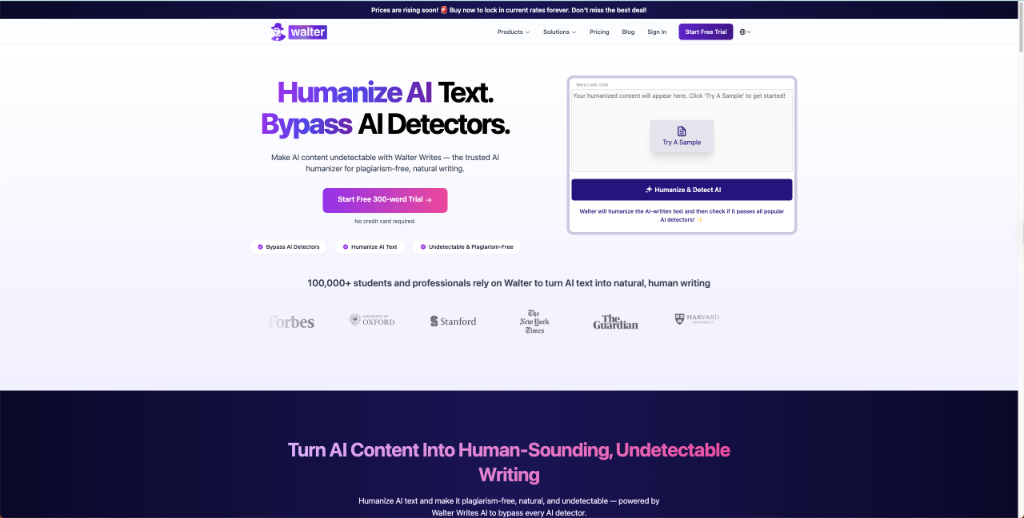
Does AI Content Work for SEO? Pros, Cons & Uses
If you have been attempting to determine whether AI content is effective for SEO or not, then you are not alone. Probably, you might be wondering if using AI to write content can even be avoided now that technology is quite advanced, right? But will search engines penalize you if you rely on AI content? You are in the right place because we will discuss this topic here to help your content rank well and draw in organic traffic.
So, should your SEO strategy begin including AI-generated content? Here are all the perks and cons that come with this decision.
What Precisely Is AI Content, Then?
It is, in other words, any text that is entirely or partially produced by artificial intelligence. The program writes for you when you offer it a prompt, such as a product description, blog topic, or even a question. Very impressive and quick, isn’t it?
When managing several websites or trying to meet deadlines, AI content can be a major time-saver. But whether AI content can boost your SEO as much as human-written content is the crucial question. The way you decide to use it will determine the answer.
The Pros of Using AI Content for SEO
Easy and fast content creation
Have you ever thought that writing takes an eternity? AI has the power to alter that. You can compose a 1,000-word piece in a few minutes thanks to it. As a result, you can post more often without burning out.
Material must be updated frequently for search engine optimization. Therefore, if you want to retain your internet visibility and rapidly develop your material, using AI tools can be the shortcut you need.
Constant content enhancement
Have you ever wondered why SEO guidelines work so well with AI content? The reason for this is that high-ranking pages teach these tools. For instance, Walter Writes AI assists you in avoiding overuse and incorporating keywords in a natural approach.

These tools achieve the ideal equilibrium when utilized correctly. You’ll probably notice that your material contains well-written meta descriptions, appropriate headings, and content that aligns with search intent — all of which search engines find pleasing.
Reasonably priced growth
It is costly to pay writers to produce a large number of blog entries each month, isn’t it? However, you can reduce those expenses by using AI-generated content. This is particularly useful if you work alone or manage a small firm.
It enables you to expand your website without incurring excessive costs. When you can proceed without breaking the bank, why remain stuck?
Developing subjects and making plans for SEO
Do you have no idea what to write about? Brainstorming can be greatly aided by AI tools. They assist you in identifying helpful keywords, providing basic outlines, and recommending fresh subjects. When attempting to establish yourself as a reliable authority in your field, this can be a huge advantage.
The Various Disadvantages of AI-Powered Content for SEO
Issues with quality
Let us take a moment and be honest: AI content isn’t flawless. It may feel bland and uninteresting, repeat concepts, or convey inaccurate information. Your SEO may suffer rather than improve if you publish AI content without reviewing and correcting anything.
After all, Google prefers content that is helpful and people focused rather than writing that is pointless or sloppy. Therefore, consider whether your audience would find something useful.
Possibility of weak or repeated content
AI tools frequently use the same kind of data, which might result in clichéd writing or repetitive sentences. Have you ever noticed how similar some posts sound? Because of this, overreliance on AI may result in dull or replicated material.
Even worse, search engines like Google might flag the content as spam. So, instead of becoming lost in a sea of content that sounds similar, it is wise to look for a writing solution that will help you to stand out.
Lacking the brand personality and personal touch
Even though AI can write well, it frequently lacks the heart, passion, and unique tone that engage your audience. Are you attempting to foster loyalty and trust? Then you need that human touch in your content.
Potential penalties for SEO
Let’s face it; Google has nothing against AI material. Low-quality content is what it truly detests. Google’s blog claims that it encourages useful and excellent content regardless of how it is produced.
However, you risk punishment if you use AI only to manipulate the system or raise rankings without providing anything of value. Can AI assist in SEO, then? In many cases, it can, but it requires the right prompting to write content that is beneficial and genuinely pertinent to your target audience.
How to Properly Use AI Content for SEO
Instead of replacing your writing, use AI to enhance it
You should view AI as a tool, not a replacement for human writing. Use it to generate ideas, outlines, and write meta descriptions. Then your thoughts will still have a chance to influence the finished product. Saving time while still sounding like you is good, isn’t it?
Always check and confirm
Consider AI content as a place to start. Think about it before you share it: is this true? Is that us? Verify the information again, correct any odd wording, and align it with the tone of your brand. SEO depends on trust, and a single inaccuracy can quickly damage your reputation.
Combine real-world examples with AI writing
Excellent SEO content often asks queries and resolves actual problems. Why not include examples from your customers or your own stories? That’s what gives your material a genuine and beneficial vibe. AI is excellent at getting things started quickly, but your creativity is what makes the content stand out.
Monitor its performance
Posting and forgetting is not an option. Verify the ranking of your AI content, the duration of visitors’ stays, and whether they are departing too quickly. Update the content to sound more natural if things don’t seem right. It’s wise to continuously modify your approach because SEO is always evolving.
How Can You Use AI Content in SEO?
There are various instances when AI content can benefit SEO. Here are some cases where it is really useful.
- Blog posts – AI can assist you in creating blog outlines, coming up with blog topics, or even writing brief blogs on current events. When you’re stuck, isn’t having a quick helper nice?
- Product details – Do you own an internet store? AI can save you a ton of time by producing numerous product descriptions that are ready to use and optimized for search engines.
- Meta tags and headers – Headers and meta tags are behind-the-scenes SEO components that AI can quickly manage for you, so you don’t need to spend time on them.
- Snippets and email marketing – Are you crafting summaries or email subject lines? AI is capable of creating catchy lines that complement your entire content strategy.
Conclusion
Are you still contemplating if AI content works for SEO? Simply, it does. You should know how to use it well. You will be able to scale, save time, and even maintain a full content calendar with this strategy. Remember that your voice, your knowledge, and editing are required to make your work perfect.



